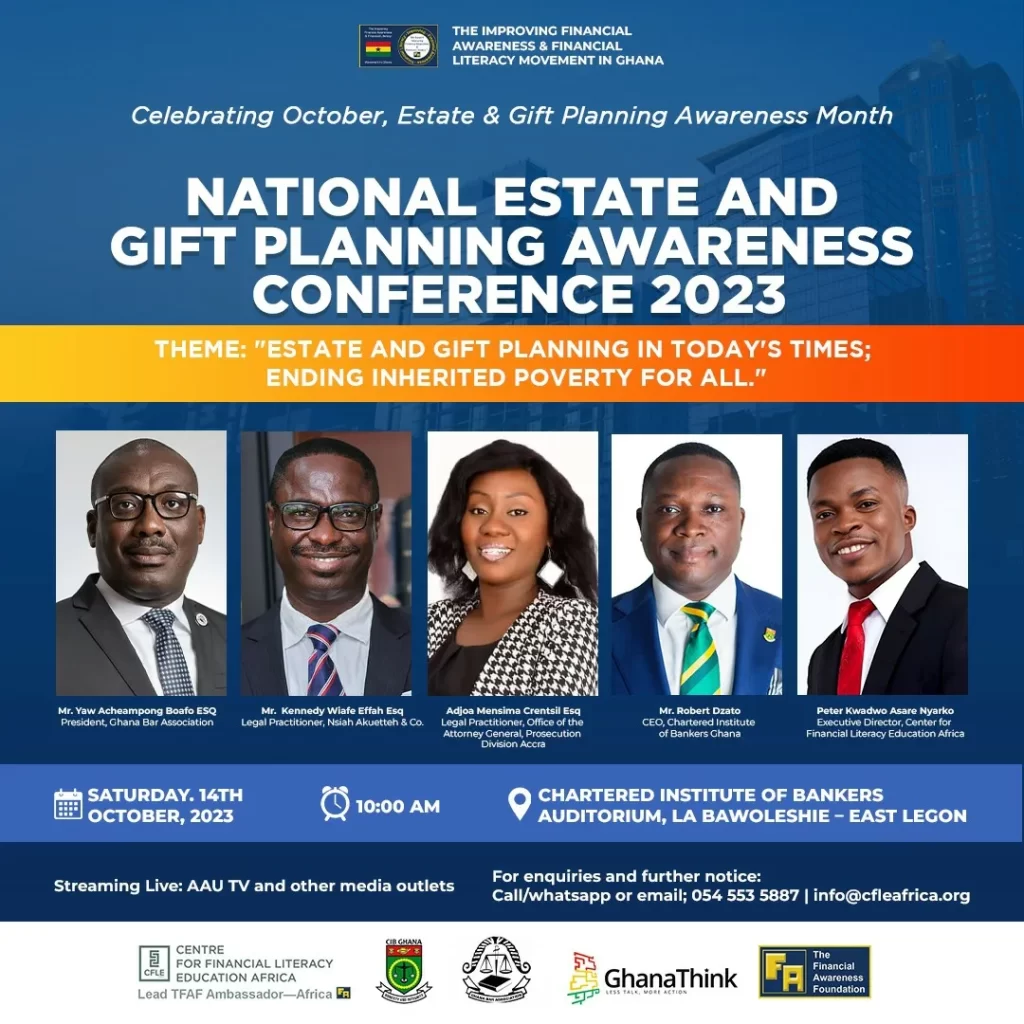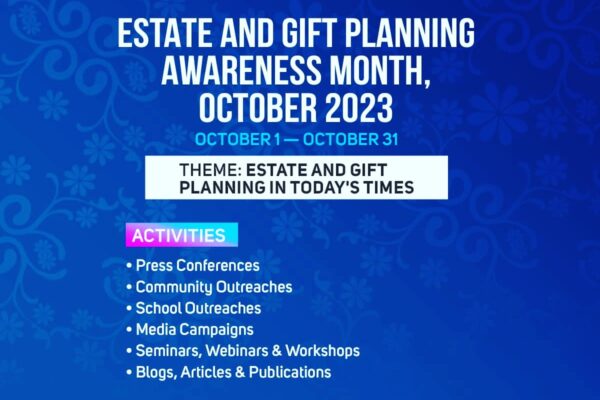Legacy giving: An Opportunity for the Legal and Financial Community
October is now celebrated across the country as Estate and Gift Planning Awareness Month Campaign. This means clients of the legal and financial community may be reading articles and hearing about estate and gift planning more this month than usual, which makes the next few weeks an especially good time to prompt your clients to review their estate and gift plans, or get their beneficiaries, wills and trusts in order if they haven’t done so yet.
Charitable giving is an important part of any estate and gift planning conversation. Certainly, bold, legacy-making plans are frequently in the news because of the high-profile people who establish them. Your clients may not realize that they, too, and nearly anyone, really, can leave a legacy to support favorite charitable and worthy causes.
By discussing what legacy charitable gifts are, how they work, what the client has in mind, and then formalizing the client’s plan with the proper legal and financial documentation, you can help your clients tie up a few of “life’s loose ends” far in advance of when that legacy gift is actually made, and give your client the peace of mind of knowing it will actually get done.
Clients’ charitable giving intentions and the possibility of establishing legacy gifts should be a routine and standard topic of any financial or estate planning discussion, right alongside provisions in an estate plan for family and loved ones.
Here’s a primer to help you simplify key principles as you convey to your clients what they need to know about leaving a legacy:
What is a legacy gift to a charity?
Encourage your clients to think of leaving a charitable legacy as a post-life gift that the client structures in advance. Legacy gifts are often referred to as planned giving.
What assets can be used to make a legacy gift?
Like the gifts to charity that your clients are already making during their lifetimes, cash, stock (especially highly-appreciated stock), real estate, life insurance, an retirmenent plan beneficiary designation (which is extremely tax effective), are examples of assets that can be the subject of a legacy gift. A legacy gift can be expressed in a client’s estate planning documents as a cedi or dollar amount, percentage of the whole, or a legacy gift of the assets themselves. Your client will want to choose assets carefully, enlisting your expertise to do so.
How is a legacy gift actually made?
Legacy gifts are typically spelled out in detail in a client’s will or trust documents. This is especially important because after the client is gone, too much is otherwise potentially subject to hearsay or conflict. To attorneys, accountants, and financial advisors, this is common sense. But do not overestimate your clients’ understanding about estate plans and how they work. A surprising 2 out of 3 Ghanaians have no estate planning documents!
How can a discussion about legacy gifts help motivate clients?
Estate and gift planning can be an uncomfortable topic because, by definition, it requires a client to contemplate mortality. This is likely part of the reason that ovet 60% of Ghanaians say they won’t even consider putting a will in place unless or until their life is in danger. Most clients think charitable giving, though, is a much more pleasant topic than discussing the end of their own lives. That’s why legacy giving is a topic that can help break the ice and pave the way for the broader, essential conversation about overall estate planning.
What are some particulars to be aware of?
Most legacy gifts can be revoked or altered through beneficiary or will changes while the client is alive. This is an important feature to mention to clients who want to include charitable giving in their estate plans but like the idea of flexibility as the overall family and financial picture changes over the years.
As part of celebrating October, Estate and Gift Planning Awareness Month Campaign, we invite you to the National Estate and Gift Planning Awareness Conference 2023. See details on the flyer below:

This article is provided for informational purposes only. It is not intended as legal, accounting, or financial planning advice.
For more enquires, visit our website: www.cfleafrica.org
Email us: info@cfleafrica.org
Whatsapp: +233 278 553 887





